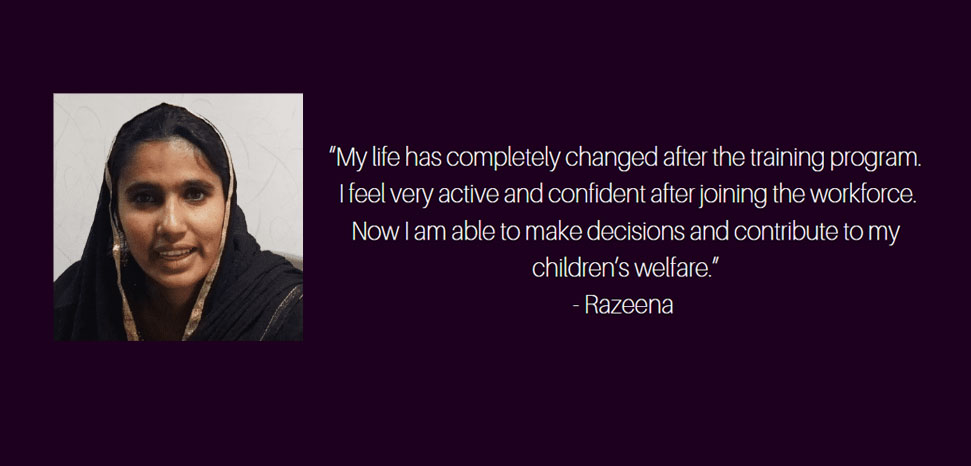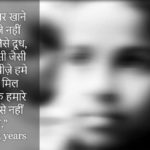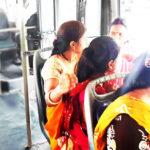In a society where progress is equated with economic development, technological advancement, financial resources and higher education opportunities, it’s boggling that India is the country with the highest population living below the poverty line. When India gained independence from Great Britain in 1947, our poverty rate was at 70 percent. Today, the poverty rate in India is 21.1 percent.
Considering development, personal or economic, cannot happen in a bubble; keeping this in mind and how important it is to be able to have access to education and skill-set training, Centre for Social Research ventured into providing skill-training under their Women’s Skill Development (WSD) program. This program was started to enable social integration for women by building capacity through skill training and ensuring that they can gain economic independence.
When WSD started their third-batch training of their Security Guard Training program, we were approached by Razeena, a married woman from an economically backward section of Delhi. She had heard about the skills training program through our Crisis Intervention Centre, where she had gone for counseling due to domestic violence in VasantKunj, and expressed a desire to join the batch as a trainee. Razeena came from a family where her husband had lost his job due to his addiction and her in-laws were vehemently opposed to her becoming the bread-winner of her family. After a lot of struggle and determination, Razeena joined the batch and received training to become a Security Guard. Her family expressed displeasure because this is a ‘man’ job and wanted to push her into stitching instead.
As a mother of four children, Razeena resolutely stood up for herself and her decision to become economically independent and get her children out of poverty. Continued opposition from her husband’s family forced her to move in with her father so she could finish her training. Today, Razeena has been working as a Security Guard for 5 successful months. She also succeeded in convincing her husband to help out with the domestic chores and is the sole earner in the family. Getting a monthly salary and benefits from being placed, she gained decision-making autonomy and is trying to build a better and more hopeful future for her children.





